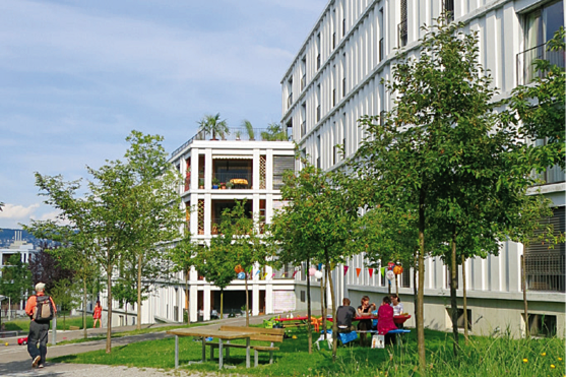Urban green spaces such as gardens, parks and forests contribute to the quality of life and well-being of a city's inhabitants. We study various aspects of the relationship between man and nature in urban areas and develop decision-making tools for practical application.
Contents ¶
A large proportion of the population now lives in cities and metropolitan areas. For many people, time spent in urban green spaces is often the only contact they have with nature in everyday life. Urban green spaces demonstrably encourage recreation and are, therefore, particularly important for well-being and quality of life in the city.
This leads to the following questions: What demands do people place on urban green spaces? How can open spaces be designed to be useful to people and meet their needs? Is this compatible with the maintenance and support of biodiversity in green spaces? How does the way in which a green space is managed affect biological diversity and people's quality of life?
We explore the relationship between people, their activities and urban green spaces. This involves close collaboration between social scientists, ecologists and practitioners. One focus is on urban gardens. These are valuable to both people and nature. They provide healthy vegetables, are places of meeting and recreation, and offer important habitats for plants and animals.

